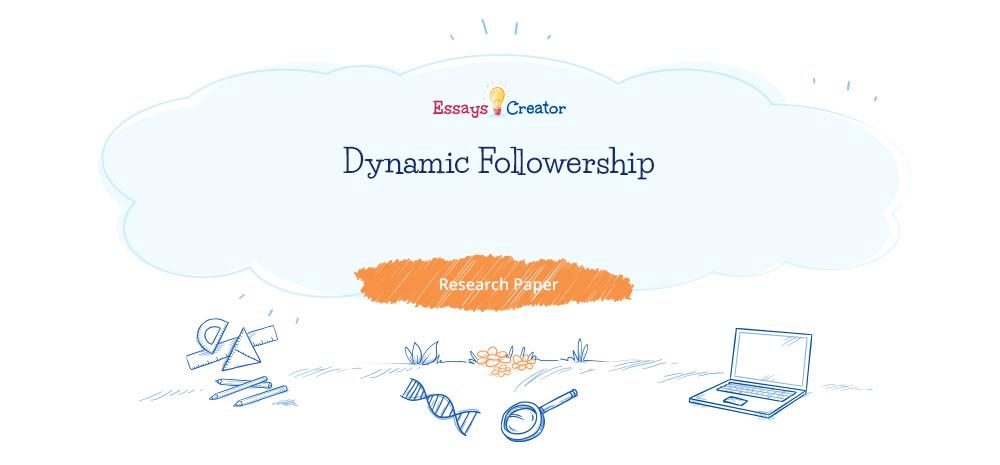
Dynamic Followership Free Essay
Dynamic followership entails two-way leadership processes. It is characterized by the expert leader, expert follower, and well-networked process; the role of the leader and follower is regulated by context and talent. In this particular followership, the intrinsic responsibility lies with the followers and the leader while all members are aligned with core values dictated by purpose and mission. In this regard, the follower acts as the alternative voice concerning the ethical conscience of the organization. Considering the above, dynamic leadership is a necessity and prerequisite while developing future leaders in that it cultivates followers who can assist others in achieving the organization’s mission without transaction rewards. This followership produces followers who can contribute seemingly to transition while fulfilling their roles as outlined in their code of conduct and core values. Dynamic followership also gives the follower the mandate to be both competent and confident regarding the specified domain of work (Howell & Shamir, 2005). In so doing, it allows the follower to demonstrate leadership responsibility while providing depths and insights to quality decision making.
There is a significant connection between the truth number six and dynamic followership according to Kouzes and Posner (2010). Truth number six stresses the need for trust in fostering credibility while practicing good leadership and followership. Dynamic followership advocates for trust in a leader hence encouraging the followers to willingly influence and be influenced by the leader. Both ideologies agree with the notion that trust and followership are perquisites to good leadership while enabling the followers to behave consistently and predictably as per the set organizational norms. The expert follower is well supported by the seventh truth which states that challenge is paramount for success. By allowing a two-way leadership process, the followers and the leader are engaged by challenges, and hence it allows the followers to handle and solve future problems and obstacles.
Order your Research Paper help today!
According to Latour and Rast (2004), dynamic followership promotes leadership that is two-way and authentic between the follower and the leader. This excerpt agrees with Kouzes and Posner’s situation of leading by example or not leading (2010). The process of influencing followers to improve the organization and fulfill the mission can only be achieved when leading by example while admitting mistakes as they arise.
Concerning leadership and followership, I am an effective follower. This well characterizes my abilities to share credit and exercise superior judgment while admitting mistakes. My motivating qualities of honesty and credibility enable me to fall under the bracket of effective followers. With the following characteristics, I am also able to link my cultures to those of the leader in the pursuit of promoting the mission and vision of any organization. My personality and character are driven by the motive of participation in task completion while being part of a dynamic team with an agenda of accomplishing the mission.
In my opinion, dynamic followership is one of the best types of followership in that it promotes a leadership process that is two-way and authentic between the leader and the followers. It is also evident as per the research that it enables the followers not to detach from the leader hence the fulfillment of the goals and agendas within the organization. Under this kind of followership, expertise and talents are nurtured and recognized in an appropriate, therefore improving the organizational effectiveness of the entire team. Dynamic followership is also relevant in organizations because it heightens the level of trust between the followers and the leader, hence active engagement toward the betterment of the organization. Finally, this kind of followership allows followers to take responsibility and improve their ethical conscience within the domain of their roles.

